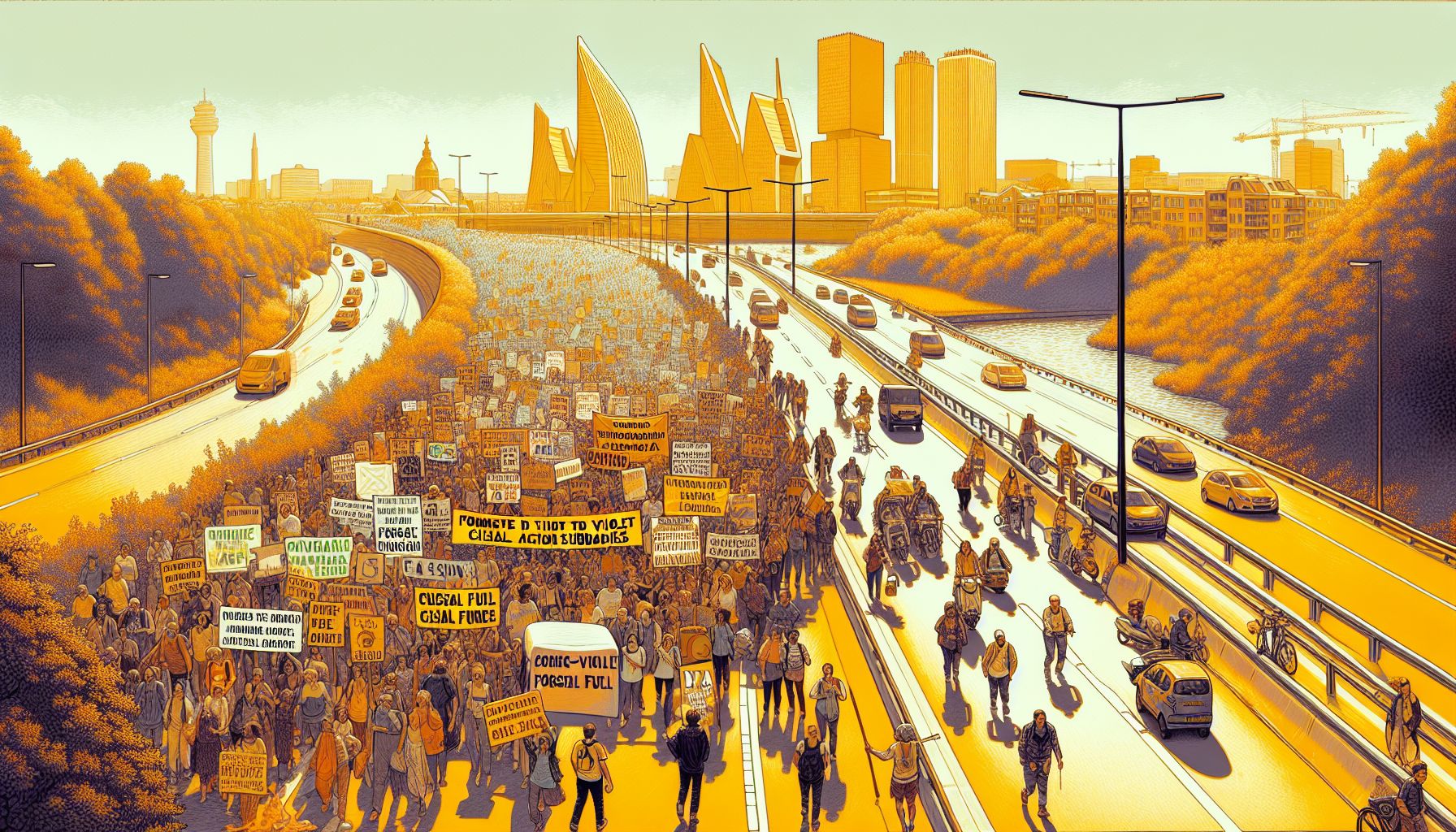Extinction Rebellion Plans A12 Blockade to Protest Fossil Fuel Subsidies

The Hague, Monday, 2 September 2024.
Extinction Rebellion Nederland is organizing a protest on the A12 in The Hague on September 14, demanding an end to fossil fuel subsidies. The group aims to redirect these funds towards more sustainable initiatives, highlighting the urgent need for climate action.
The Significance of the A12 Blockade
The A12 blockade is a significant event, as it underscores the increasing urgency with which Extinction Rebellion (XR) is approaching climate activism. By targeting a major highway in The Hague, the group aims to draw attention to what they see as the Dutch government’s inadequate response to the climate crisis. XR Nederland believes that continuing to subsidize fossil fuels directly contradicts the nation’s commitments to international climate agreements and hampers progress toward a sustainable future.
A Broader Context of Global Protests
This protest is a part of a broader wave of global actions organized by XR, which has been vocal against the continued investment in fossil fuels. For instance, XR in the UK has been actively protesting against the government’s North Sea oil and gas exploration policies. Just last month, activists in Windsor, including Olympic champion Etienne Stott, called for the establishment of a citizens’ assembly to address the climate crisis[1]. These actions are aimed at pushing governments worldwide to take more decisive steps towards achieving net-zero carbon emissions.
The Demands and Goals
XR Nederland’s primary demand is the immediate cessation of all fossil fuel subsidies. They argue that the funds currently allocated to these subsidies would be better spent on renewable energy projects and other sustainable initiatives. According to XR, this reallocation is essential for meeting the climate goals set forth in the Paris Agreement. The group also advocates for the establishment of a citizens’ assembly, a body that would be tasked with overseeing the transition to a more sustainable economy. This democratic approach is seen as a way to bypass political gridlock and vested interests that often hinder climate action.
Public and Political Reactions
Public reaction to XR’s disruptive tactics has been mixed. While some support the group’s aims, others criticize the inconvenience caused by such protests. In the UK, for example, a survey found that 41% of 18 to 24-year-olds supported traffic disruption in London to promote XR’s goals[2]. On the political front, responses have ranged from condemnation to cautious support. Business Secretary Kwasi Kwarteng, for instance, has stated that the UK cannot simply switch off domestic oil and gas production, highlighting the complex balance governments must strike between economic and environmental concerns[3].
Looking Ahead
As the protest date approaches, all eyes will be on The Hague to see how the government and public respond to XR Nederland’s actions. The effectiveness of these protests in bringing about policy change remains to be seen, but what is clear is that XR is steadfast in its commitment to climate action. They argue that the time for incremental changes is over and that bold, decisive action is necessary to avert the worst impacts of climate change.

